We called my maternal grandfather, Mershell C. Graham, “Poppy”. My grandmother, Nanny, and his friends called him “Shell”. His co-workers called him “Bill”.
In the summer of 1953 my mother, sister and I stayed with my grandparents while my father was organizing a new church and parsonage across town. He stayed with his parents. We didn’t have a car and each morning we walked our mother around the corner to the bus stop where she caught the bus to Wayne State University. She was taking classes to get her teaching certification.
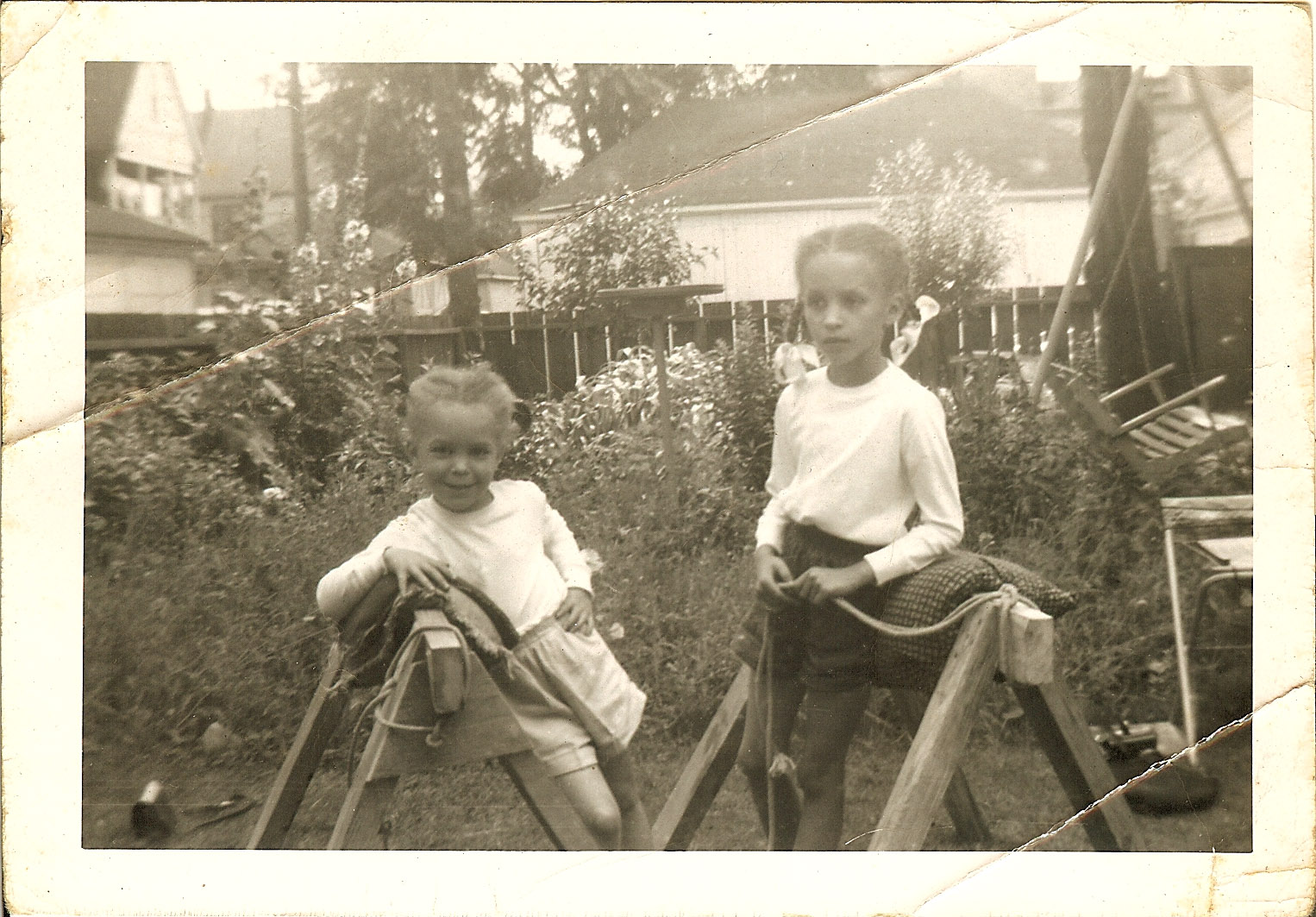
I was almost seven and my sister Pearl was four. I remember spending most of the summer playing in the backyard. My grandmother would be doing what she did in the house, my great aunt Abbie mostly stayed up in her room looking out of the window. After 35 years, my grandfather was working his last months at Ford Motor Company. He retired on December 31.
My grandparent’s house and yard was surrounded by an alley on two sides. On the third side was the Jordan’s house next door and on the other side of them was the third arm of the alley. You can see on the map below that the long arms of the alley went through from Theodore to Warren Ave, which is where the bus stop was. My grandfather did have a car, but he didn’t use it to go to work. He caught a streetcar and it took him right to the River Rouge Plant. He had built a little ramp against the back fence against the wooden fence. We could see him coming home through the alley carrying his lunch box.
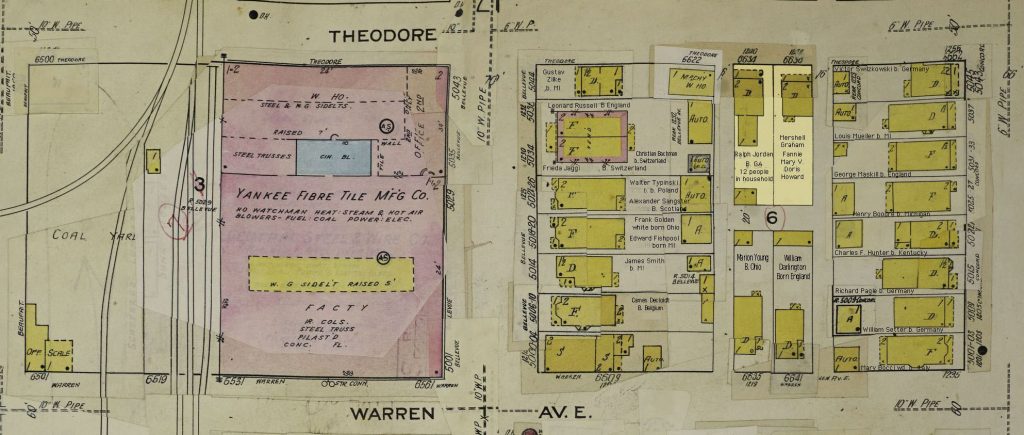
My grandfather began work at Ford’s Highland Park Plant on May 10, 1918, as a machinist. He was 30 years old and single. During that time Ford’s was paying five dollars a day, to qualifying workers, for a forty hour week. There were no benefits.
He returned to Montgomery and married my grandmother, Fannie Mae Turner, in 1919, they returned to Detroit the same day. In the 1920 census his occupation was an “auto inspector”. He was transferred from the Highland Park plant to Rouge plant on March 14, 1930 and went to work as an electrical stock clerk, which is the position he held until his retirement in 1953.
He was at the Rouge Plant during the May 26, 1937: Battle of the Overpass and the unionizing of the auto plants. My mother told me that after he joined the union, he carried a gun to work for protection. Unfortunately, I never heard my grandfather talk about any of this.
In September 1949 the UAW won a $100-a-month pension, including Social Security benefits , averaging $32.50 a month, for those age 65 with 30 years of employment with Ford’s. My grandfather was among the earliest workers to receive the pension when he retired at age 65 after working there for 35 years. His Social Security benefit was $85 a month. My grandmother received $42.50 as his homemaking wife.
Other posts about my grandfather’s life.
One Way Ticket
From Montgomery to Detroit – Plymouth Congregational Church – 1919
Mershell Graham and Fannie Mae Turner
Graham-Turner Wedding – 1919 Montgomery Alabama
F – FAMILY, MY GRAHAMS in the 1920 Census
The Graham’s in the 1930s
Mershell Graham’s Notebook – 1930s
Lizzie – 1934
1940 Census – The Grahams
The Graham’s in the 1950 Census
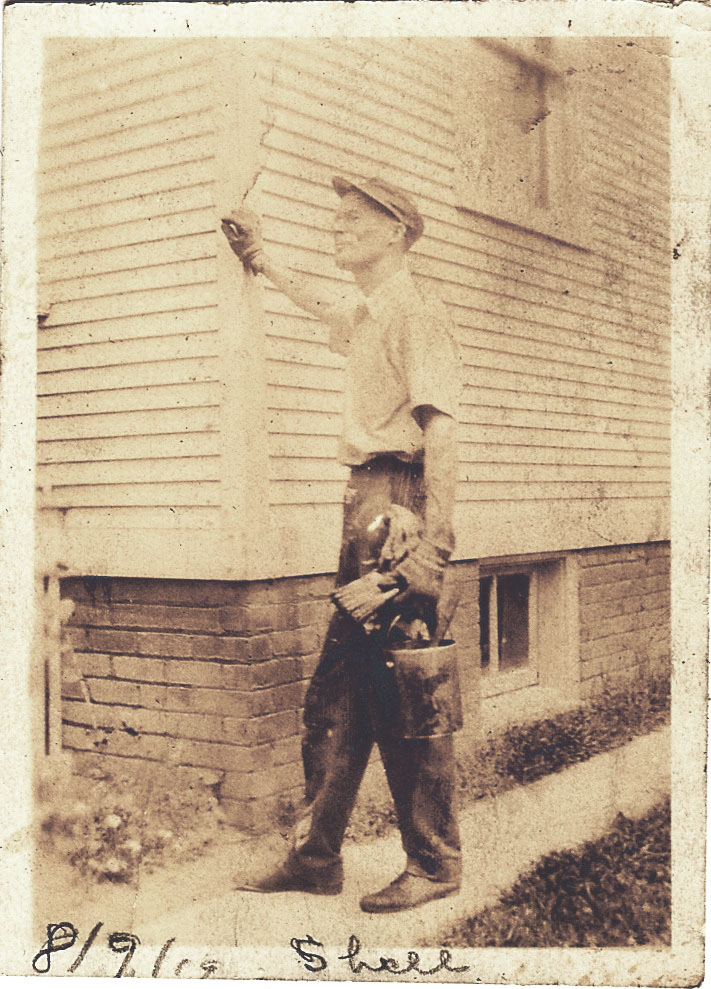
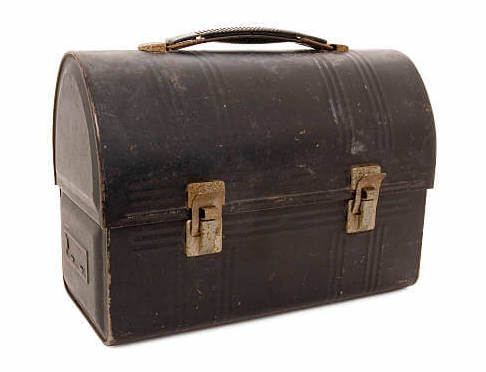
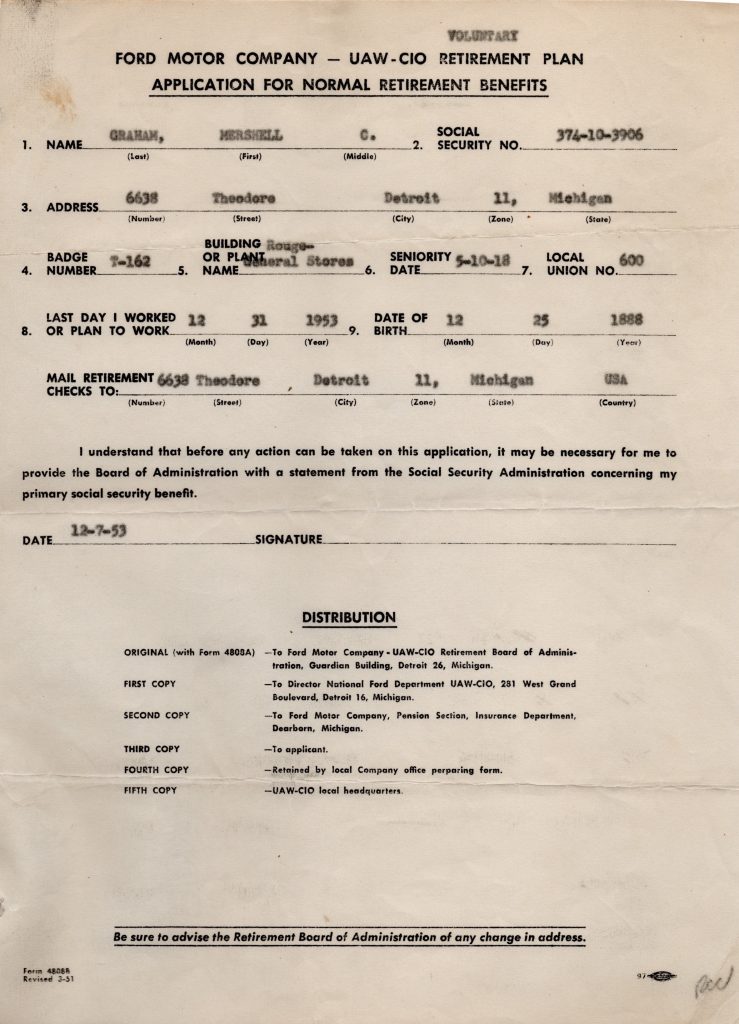
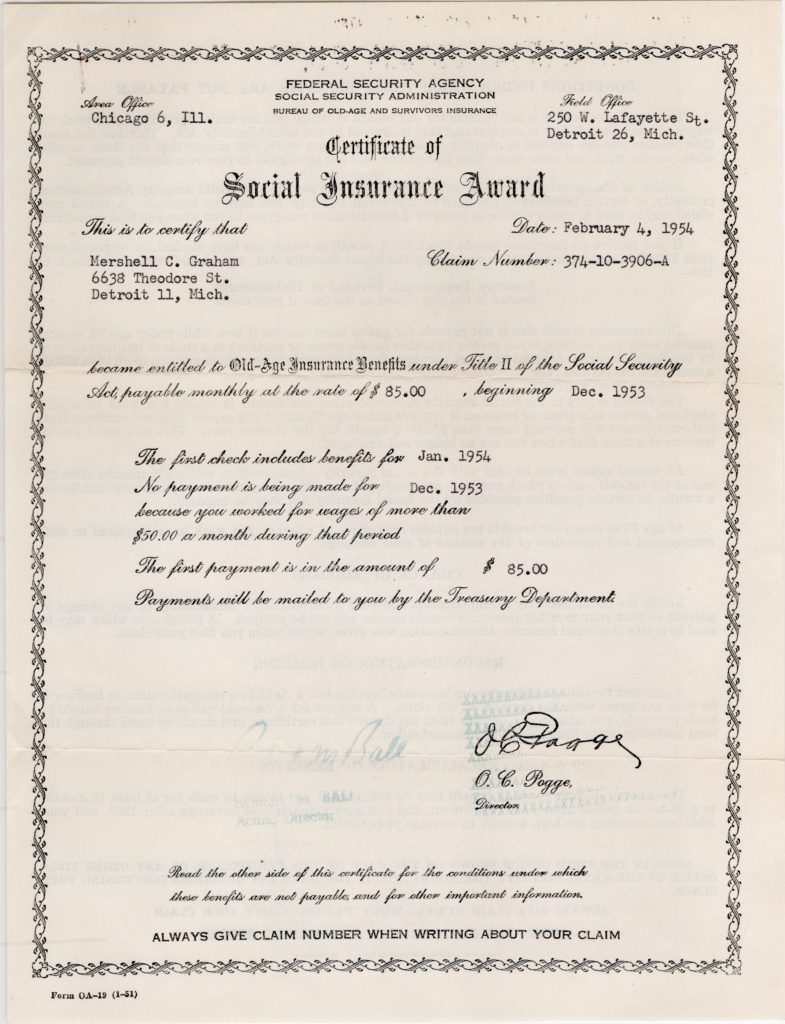
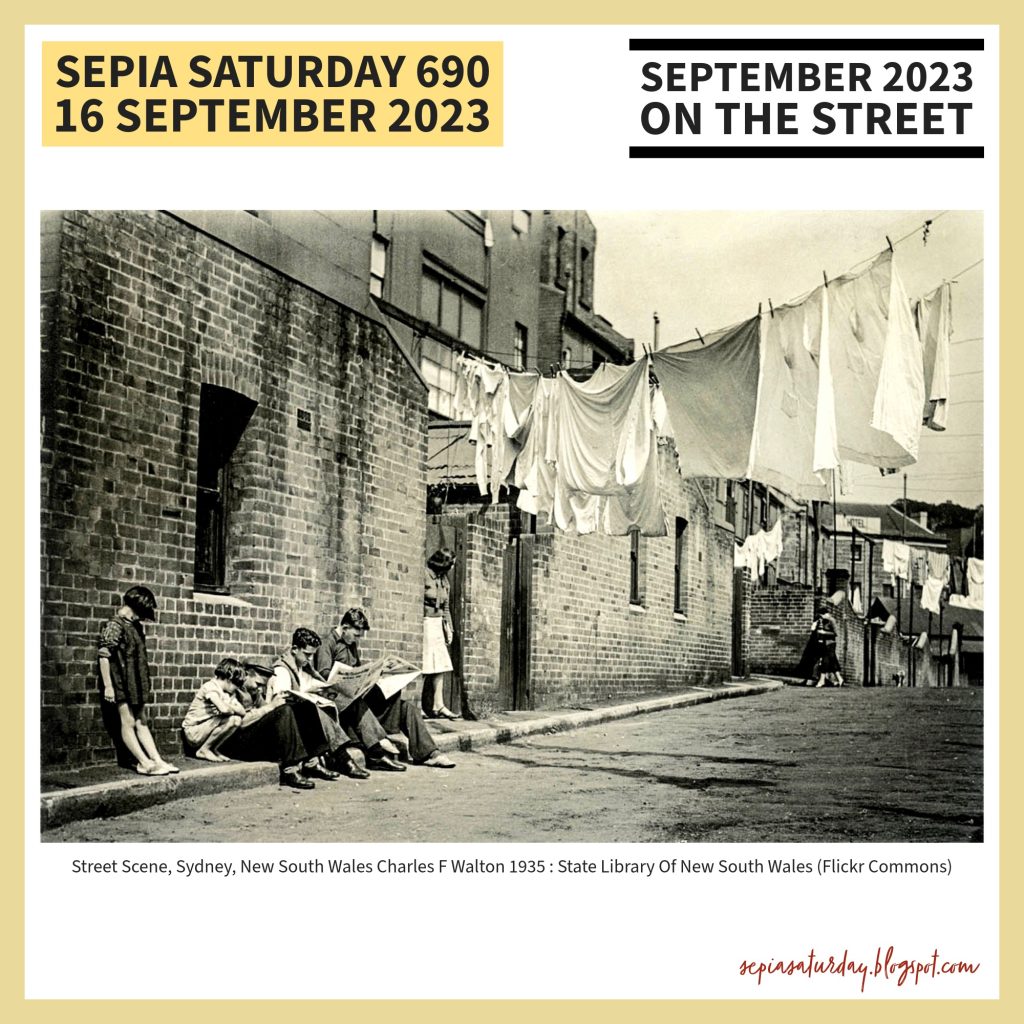
Carrying a gun to Work! WoW!
The company hired goons to beat union members up.
Confused here…your grandfather only got $85/month pension, though in 1949 they established a $100/month pension. He certainly would have been eligible for the full payment, right? I’m so glad the UAW is asserting their needs against the auto companies right now (Sept, 2023) Unions are often badmouthed, but they gave us 40 hour work weeks and weekends. The middle class emerged from their efforts.
My grandfather was also called Poppy by all his grandchildren!
On another subject, I did mention on my blog https://threefamilytrees.blogspot.com/2023/05/bearded-52-ancestors-52-weeks-week-20.html
that my (rascal/privateer) GG grandfather had carried enslaved peoples from Charleston SC to New Orleans LA, which was illegal at the time, by going into a port in the Caribbean with them, thus being able to say they had come from there! I show 2 manifests that have his signature with slaves listed on them.
I thought slave trading was legal as long as it was internal. Hence the slave coffles marched across states with sales along the way. From the east coast to the deep south. In that case, going to the Caribbean and claiming he was bringing them from there would have been illegal, but not from SC to NO. That’s my understanding.
My grandfather received $85 in social security. Ford’s added another $15 to bring it up to $100. Most of it came from social security. My family has always been pro-union. I used to sing my babies to sleep with “I dreamed I saw Joe Hill Last Night”
https://www.youtube.com/watch?v=n8Kxq9uFDes
My oldest son has worked for various unions as an organizer for the past 20 years.
Homemaking wives got SS?
Half of what their husbands got. I receive it now because I didn’t work for pay enough to get it on my own.
That’s a beautiful photo of your grandfather to feature for your story. My maternal grandfather worked as a train brakeman and later as a yardmaster at Union Station in D.C. Like Shell he wore similar old work clothes for household chores that I know were originally his work trousers and shirts. He also carried an identical lunch box that my grandmother would fix every morning.
Labor unions may still get bad press coverage but at least the union members no longer have to fear the violence of the old days. Workers in all kinds of trades, from the auto industry to Hollywood, face a never ending struggle to change the balance of power, influence, and money that corporations and their CEO’s command. I still belong to the musicians union which won enough good contracts that it changed the way our profession works for the better even in the non-union orchestras of the south.
I like that photo too. My grandmother always fixed his lunch too. My grandfather was listed as an auto mechanic in a railroad yard in the 1910 census. He worked at many different kinds of jobs between that and the one at Ford’s. The auto workers gave up a lot during the recession early in the 2000s – including pensions. Unbelievable. I hope they get them back.
Unions were/are good for the workers, but the companies hated them and still today don’t like dealing with them. That black lunch box brought back many menories. It was the sort of lunch box I had at some point in elementary school until I finally had a regular kid’s square flat lunch box with cartoon characters on it.
Understandable since the unions are trying to get some of their absurd profits for the workers. When I started school someone gave me a lunch box with my name on it. It was green, I think there was an apple and my name was in red diagonally. I don’t know if I ever used it because we always came home for lunch until we couldn’t in junior high school and at that point I carried my lunch in a brown paper bag.
This is a timely post, given that the UAW is currently out on strike for pay equity. A shame your grandfather never spoke about his 1937 experience in the early rough-and-tumble union organizing days in the 1930s. Wall St. has relentlessly pushed to eliminate workers’ valuable pensions, substituting less-than-adequate 401K plans. Excellent that your grandfather collected his! Also, I like the map illustrating where the family home was. That and your childhood photo give a feel for the neighborhood.
He never really talked about his life. Now that I’m old, I can see that it’s difficult to bring these things up if you don’t have age-mates around to talk to. If you do, things just come up with “remember when?” If you are just one of the last two, along with your spouse, it’s something you have to just bring up on purpose among all the younger people who may or may not have an interest at the time.
Hope that convoluted paragraph is understandable!